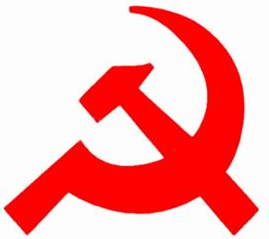The consequence of the Covid19 pandemic is a sudden slowdown in economic activity worldwide due to the States’ response through the containment of populations. This slowdown affects production, services and world trade.
The production and value chains are deeply affected by the interdependence of economies caused by the largely globalized and fragmented nature of production imposed on the world economy by transnational monopolies.
At the same time, armed conflicts, manifestation of direct or indirect confrontations within imperialism, seem to have calmed down, being masked by the intense focus on the epidemic, however they have not disappeared far from it.
This slowdown in the world economy, which in many countries has exposed the external dependence of the imperialist powers’ economies, makes them question their industrial strategy. However, are the heavy trends of competition developing within the imperialist system and rooted in the bitter and violent struggle waged by the great capitalist monopolies and the states at their service upset?
The answer is no, although we must note that they intensify in the context of major changes in the reconfiguration of international relations. Thus, the race for business resumption, including to the detriment of the health of populations, aims to put the great capitalist monopolies in a position to secure supremacy in the capitalist restructuring and concentrations which are already going on.
In the immediate future, the strategies of outsourcing manufacturing production and services to low labor cost countries will not change, or only marginally; on the other hand, financial flows will tend to accentuate the movements already at work, for example from China, considered a rising imperialist power competing with a declining US imperialism, towards India considered weaker and which constitutes at least in US eyes an Asian counterweight to Chinese power. China, which was one of the major partners of the USA in Asia to counter Soviet influence, has now become its main adversary. Everything is done to prevent it from becoming a top imperialist power. The US trade war against China, as well as the capitalist extension of China through "Silk Road" projects are the expression of these confrontations.
It is clear that the strategy of the USA, a major power struggling to maintain its supremacy in the imperialist systems, is to rely on its relative energy and more generally economic and military independence in order to "free itself" from what they consider shackles. They want to be able to operate economically and militarily "unhindered" by international agreements, whether economic, cultural, sanitary, military...Thus, recently the USA declared they were to leave the Open Skies Treaty, an important collective security treaty allowing the signatory countries to conduct unarmed surveillance flights over each other’s territory. All the economic and military measures that the US is taking certainly give it a free hand, but at the same time trivialize its status as a state like any other. This path is dangerous for world peace, and at the same time it reflects the weakening of the United States as the dominant imperialist power.
In Europe, the consequences of the pandemic are not lesser than elsewhere, here too they accentuate old trends. The solutions implemented consist in fueling the formation of a speculative debt while major restructuring and capital concentration operations are being prepared. This is the case, for example, in sectors as important as mechanical engineering, chemistry and pharmacy. Each country and especially Germany intends to defend its monopolistic champions and its own interests, making itself in fact subordinate to the USA.
For the poorest and most exploited countries dominated by imperialism, the epidemic adds a major difficulty: an increase in food and health problems unprecedented for decades. They are an even easier prey to fall under the domination of the imperialist powers which plunder them. Hunger riots take place every day in many countries on all continents and are fiercely repressed.
So while the epidemic accentuates current trends and exacerbates inter-imperialist clashes, it has not suppressed wars and foreign interventions. Cuba, Venezuela, Iran… are still under blockade which deprives their populations of basic goods; the Middle and Near East Yemen, Syria undergo imperialist interventions while Israel accentuates the total colonization of Palestine.
In short we are witnessing today an exacerbated competition within imperialism driven by the need to occupy the first place in the imperialist system. It is around this question that we must read the strategies developed by the States; it shapes the future alliances, the formation of blocks around the two main protagonists: China and the USA.


